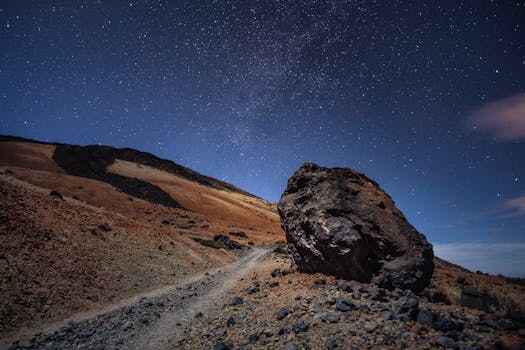
**
Trading City Lights for Island Life: My Unexpectedly Happy Escape to Washington's San Juan Islands
For years, the relentless hum of city life – the sirens, the traffic, the constant pressure – felt like a suffocating blanket. I craved a simpler existence, a connection to nature that felt more profound than a weekend hike in a crowded park. So, I did something drastic: I traded my bustling city apartment for a remote island in Washington state's San Juan Islands, a place without a grocery store, gas station, or even readily available cell service. And you know what? I've never been happier.
This wasn't a spur-of-the-moment decision. The idea of off-grid living had been brewing for a while, a quiet rebellion against the hyper-connected, always-on world I inhabited. The San Juan Islands, with their stunning natural beauty and promise of a slower pace, felt like the perfect escape. Specifically, Lopez Island, known for its laid-back atmosphere and abundance of wildlife, called to me.
The Challenges of Island Life: No Grocery Store? No Problem!
Leaving behind the conveniences of city life wasn't easy. The most significant adjustment? No grocery store. Before making the move, I meticulously researched sustainable living strategies, understanding that my reliance on pre-packaged, readily available food would need to change. This meant:
- Planning ahead: Weekly grocery runs to the mainland became a necessary part of my routine, requiring careful planning and efficient packing. I learned to buy in bulk and preserve food using techniques like canning and freezing.
- Embracing local sourcing: The island has a thriving farmers' market and a few small producers who sell locally grown produce, eggs, and honey. Building relationships with these local farmers has become a rewarding part of my experience, fostering a deeper connection to the land and its people.
- Learning to garden: I've started a small garden, supplementing my diet with fresh herbs and vegetables. It's been challenging but incredibly satisfying to grow my own food, even if it's just a few tomatoes and basil plants.
Island Transportation: Beyond Cars and Gas Stations
The lack of a gas station was another hurdle. I opted for an electric vehicle (EV) and researched the best electric vehicles for off-grid living, ultimately choosing one with a longer range to accommodate my trips to the mainland. Charging infrastructure on the island is limited, but it's enough for my needs, and I plan to invest in solar panels for my home to further reduce my reliance on the power grid. For shorter trips around the island, I rely on a bicycle. This shift in transportation has not only been environmentally friendly, but it also allows me to experience the beauty of the island in a completely different way.
Connecting in a Disconnected World: Internet and Cell Service
The limited cell service and internet access might seem like a drawback, but I've found it surprisingly liberating. The constant connectivity of city life can be overwhelming. Now, I have the space to focus on what truly matters – my hobbies, my relationships, and my connection to the natural world. I have a satellite internet connection that provides adequate service for my work, and I've learned to appreciate the times when I'm truly offline. This experience has taught me the importance of digital detox and the value of mindful disconnection.
Finding Community and Belonging in an Isolated Setting
Initially, I worried about the isolation that comes with island life. However, I've discovered a strong sense of community among the island's residents. People are friendly, helpful, and genuinely care about each other. This close-knit community has become a source of support and friendship, making the remote location feel less isolating and more like a warm, welcoming embrace.
The Unexpected Rewards of a Simple Life: Mental and Physical Well-being
The biggest reward of this lifestyle change has been a profound improvement in my mental and physical well-being. The stress and anxiety that once plagued me have significantly reduced. I sleep better, I eat healthier, and I spend more time outdoors, hiking, kayaking, and simply enjoying the natural beauty of my surroundings. The constant exposure to nature has been incredibly therapeutic, offering a sense of peace and tranquility that I never experienced in the city.
Tips for Aspiring Island Dwellers
Considering a move to a remote island? Here's what I've learned:
- Research thoroughly: Understand the challenges and limitations of island life before making the leap. Learn about access to essential services, transportation options, and community resources.
- Embrace self-sufficiency: Develop skills related to gardening, food preservation, and basic home maintenance.
- Build a strong support network: Connect with existing islanders and build relationships with local farmers and businesses.
- Be prepared for unexpected challenges: Things will not always go as planned. Flexibility and adaptability are key to successfully navigating island life.
- Assess your financial situation: Island living often requires a different financial plan than city living. Consider factors like transportation costs, limited job opportunities, and the possibility of fluctuating income.
My move to a remote island in Washington's San Juan Islands was a radical change, a leap of faith that has transformed my life in unexpected and wonderful ways. While it presents challenges, the rewards of a simpler, more connected life in nature far outweigh the inconveniences. It's a testament to the fact that happiness isn't always found in the hustle and bustle of city life, but sometimes in the quiet simplicity of an island home. It's a journey of self-discovery, resilience, and an enduring appreciation for the beauty of nature and the importance of community.
















